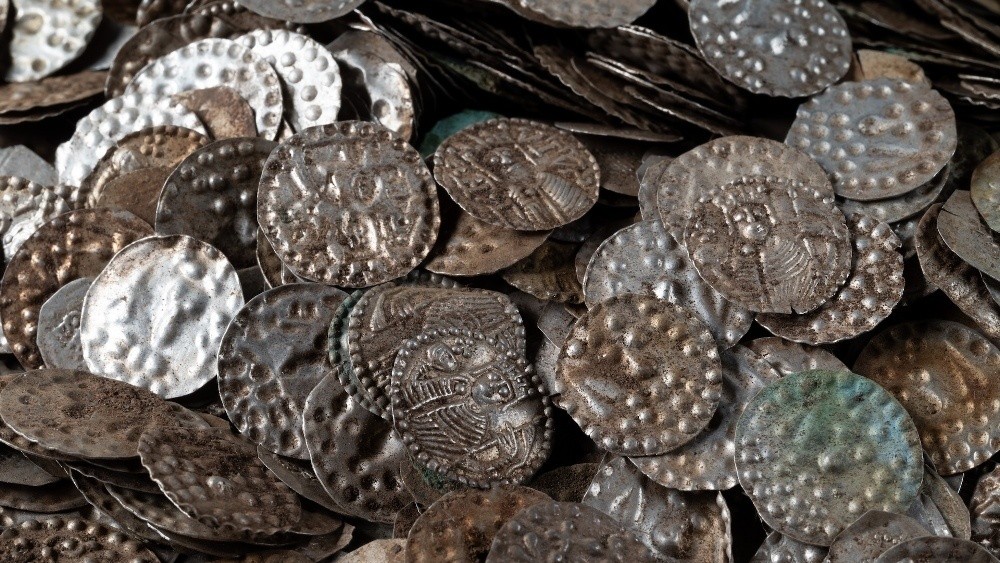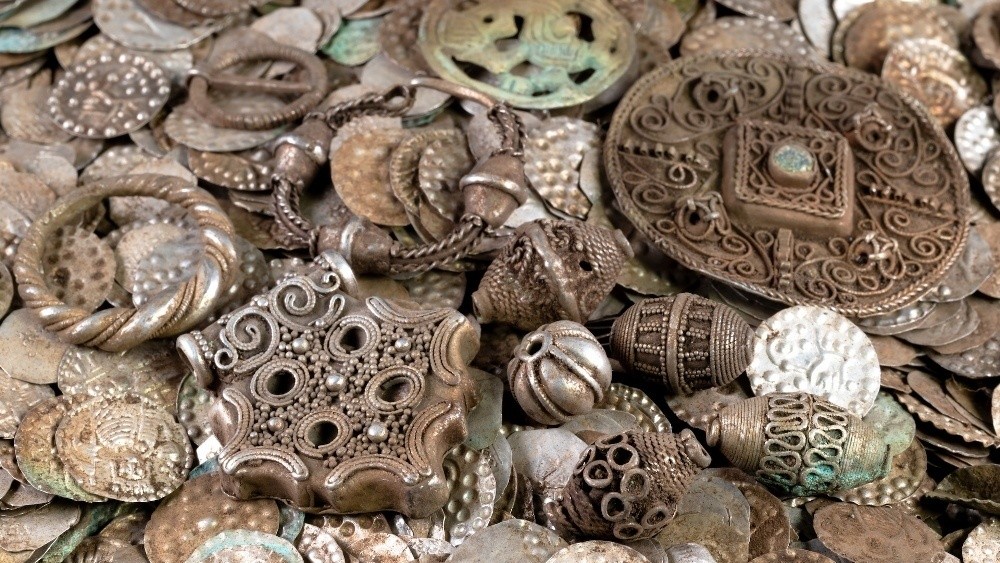A Worm-Digger's Find That Could Rewrite Swedish History: Up to 20,000 Medieval Silver Coins Unearthed Near Stockholm
A man digging for worms near his summer house outside Stockholm stumbled on a find many experts will call a treasure of a lifetime: a hoard of silver coins, possibly as many as 20,000, along with pearls, pendants, and silver rings. He reported the discovery to authorities immediately, and archaeologists arrived to examine the site.

In This Article:
- Six Kilograms of History: A Copper Pot Grave Reveals a 12th-Century Hoard
- KANUTUS and Knut Eriksson: Coins Bearing the King's Latin Name
- Rare Bishops, a Knut Eriksson Portrait, and a Gotland Temple
- Stockholm Before Its Rise: The City That Would Become Sweden's Largest by the End of the 13th Century
- What Happens Next: State Purchase, Rewards, and Sweden's Cultural Heritage Law
Six Kilograms of History: A Copper Pot Grave Reveals a 12th-Century Hoard
The treasure weighs roughly six kilograms. Preliminary analyses show that most coins date from the 12th century, and the copper pot in which they lay had deteriorated over time.

KANUTUS and Knut Eriksson: Coins Bearing the King's Latin Name
A preliminary analysis places the majority of coins in the 12th century. Several coins bear the inscription KANUTUS, the Latin form of Knut, pointing to minting during the reign of King Knut Eriksson (roughly 1173–1195).

Rare Bishops, a Knut Eriksson Portrait, and a Gotland Temple
The hoard also contains rare pieces minted by powerful bishops, including coins that bear a bishop's staff as a symbol of church authority. Other coins include one with Knut Eriksson's profile and another from Gotland that may depict a temple.

Stockholm Before Its Rise: The City That Would Become Sweden's Largest by the End of the 13th Century
Scholars note that Stockholm did not exist at this time—the city’s official founding date is 1252—and it would grow to be Sweden's largest city only by the late 13th century.

What Happens Next: State Purchase, Rewards, and Sweden's Cultural Heritage Law
Archaeological work continues as Sweden's National Heritage Board decides whether the state will buy the hoard and what compensation the finder will receive. Under Sweden's cultural heritage law, anyone who finds ancient silver or a treasure must offer it to the state for a reward. This discovery offers a rare window into medieval Sweden and the world before Stockholm's rise.


